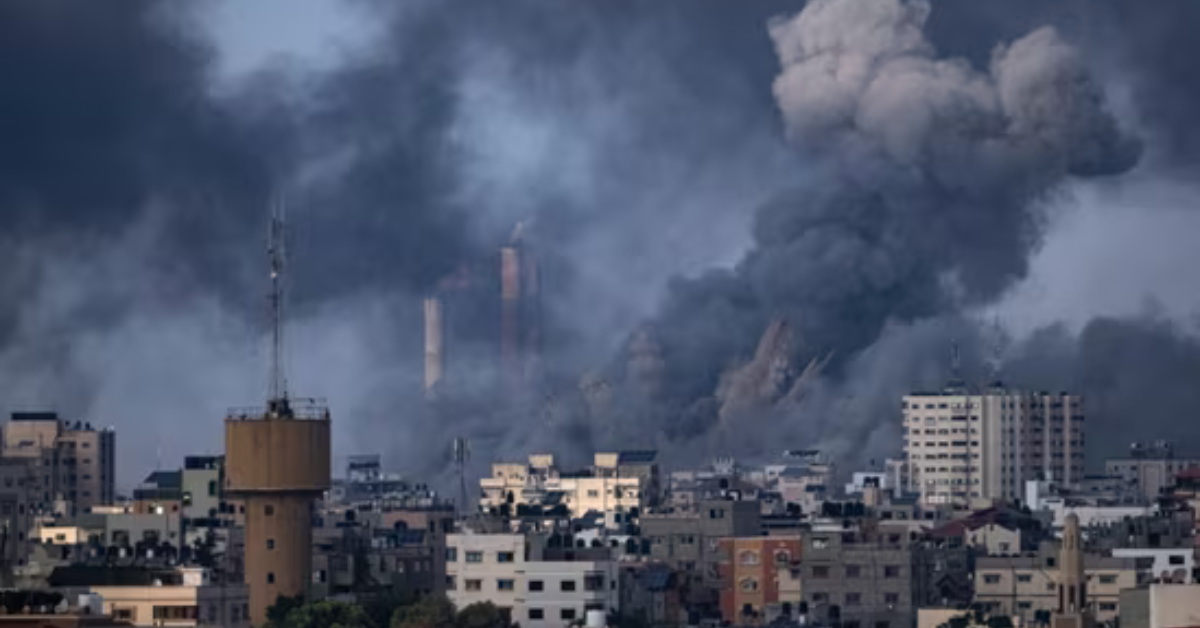Israel-Hamas war: Understanding crime against humanity
The Israel-Hamas war, sparked by a weekend assault by the militant group Hamas, has resulted in a significant and distressing loss of life on both sides. This complex conflict falls under an intricate international framework of justice that has evolved since World War Two. In this article, we’ll delve into the specific laws that govern this conflict, the role of the International Criminal Court (ICC), and the potential war crimes that could shape the future of this ongoing crisis.
What Laws Govern the Conflict?
Internationally accepted rules of armed conflict emerged from the 1949 Geneva Conventions, ratified by all United Nations member states and supplemented by rulings at international war crimes tribunals. A series of treaties collectively known as the “Law of Armed Conflict” or “International Humanitarian Law” governs the treatment of civilians, soldiers, and prisoners of war. These laws apply to government forces and organized armed groups, including Hamas militants.
If alleged perpetrators of atrocities in Israel and the occupied Palestinian territories are not brought to justice at home, the International Criminal Court (ICC) in The Hague holds the authority to bring charges. While domestic courts can apply universal jurisdiction in war crimes cases, this approach has limitations. The ICC’s founding Rome Statute grants it the power to investigate alleged crimes on its members’ territories or by their nationals when domestic authorities are unable or unwilling to do so. The ICC has confirmed that its mandate applies to potential crimes committed in the current conflict, and it continues to gather information.
Read more: ‘Zombie-like scenes’: Israel describes horrifying scenes in Hamas strike
The Role of the ICC
The International Criminal Court (ICC), established in The Hague in 2002, is the world’s permanent war crimes tribunal. It has jurisdiction over war crimes, crimes against humanity, and genocide in its 123 member states or committed by its nationals. Notably, some major powers like China, the United States, Russia, India, and Egypt are not ICC members. While the ICC recognizes Palestine as a member state, Israel rejects the court’s jurisdiction and does not formally engage with it. The ICC’s budget allocated just under a million euros ($1.06 million) for investigations in the Palestinian territories in 2023, and it seeks additional resources.
The ICC has been conducting an ongoing investigation into allegations of war crimes and crimes against humanity in the occupied Palestinian territories since 2021 but has not issued any arrest warrants. In 2021, prosecutors stated that there was a reasonable basis to believe that violations had been committed by all sides, including Israeli troops, Hamas militants, and other armed Palestinian groups.
Acts that Violate War Crimes Law
Several acts have been cited as possible war crimes by organizations like Human Rights Watch. These include the deliberate targeting of civilians, indiscriminate rocket attacks, and the taking of civilians as hostages by Palestinian armed groups. Additionally, the Israeli counter-strikes in Gaza that resulted in the deaths of hundreds of Palestinians are under scrutiny. Such actions as deliberate killings of civilians, hostage-taking, and collective punishment are unequivocally prohibited under the Geneva Conventions.
Furthermore, Israel’s responses to the conflict could also be subject to a war crimes investigation. Israeli Defense Minister Yoav Gallant’s announcement of a tightened blockade to prevent food and fuel from reaching the Gaza Strip has drawn criticism from U.N. officials and human rights groups. Such a siege can be considered a war crime if it disproportionately targets civilians rather than serving as a legitimate means to undermine Hamas’ military capabilities.
According to international law, attacks on military objectives must be proportional, ensuring they do not result in excessive loss of civilian life or damage to civilian objects in relation to the expected military advantage. Notably, some experts have pointed to the gruesome killings by Hamas militants as potential focal points for war crimes cases, including the deaths of hundreds of revelers at a dance rave and civilians in Kibbutz communities near the Gaza border.
In the Israel-Hamas conflict, the application of war crimes laws is crucial to ensuring justice and accountability for all parties involved. Understanding these laws and their implications is vital to finding a path toward a more peaceful and just resolution to this ongoing crisis.

